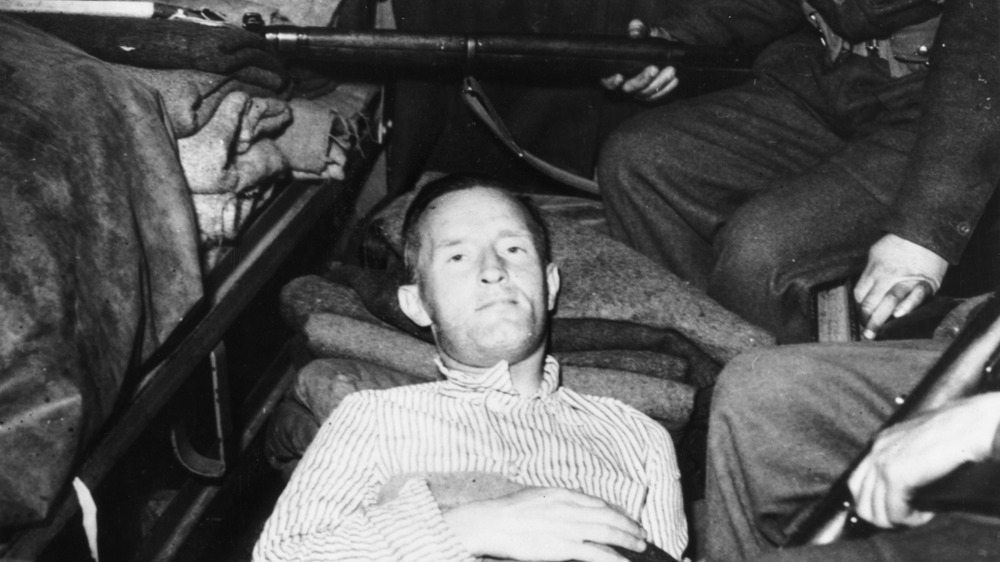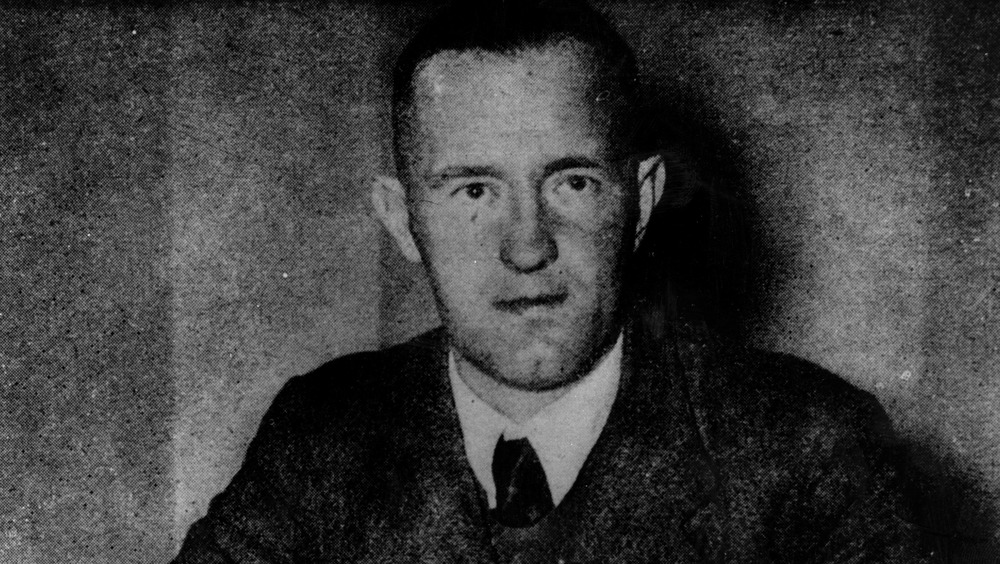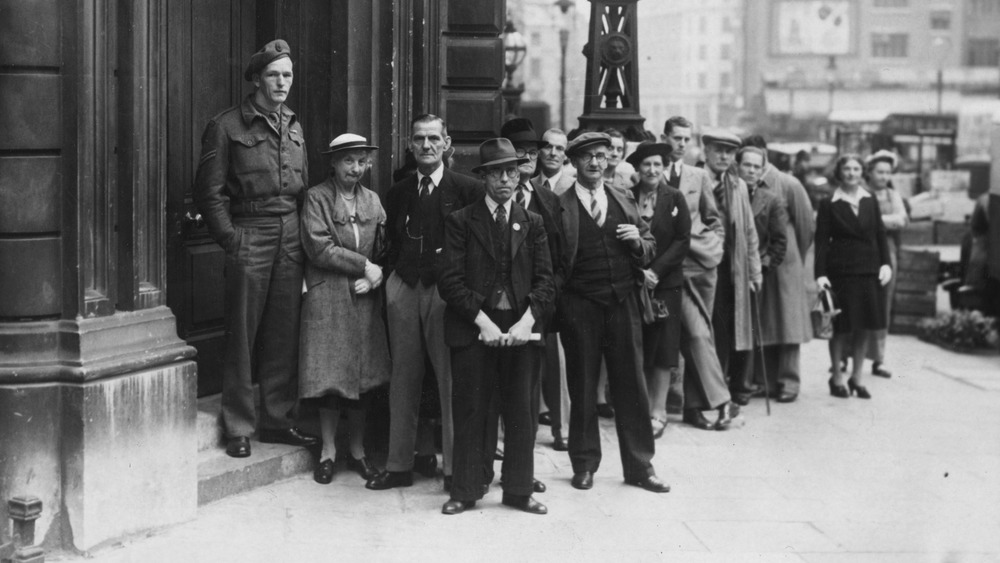The True Story Of The Last Brit Executed For Treason
On January 3, 1946, one of the most infamous men in Britain's World War II history found himself in a hangman's noose. William Joyce, better known to the British public as "Lord Haw-Haw," was found to have betrayed his country by broadcasting anti-British propaganda on behalf of Nazi Germany and was executed for it, making him the last British man sentenced to death for treason.
Joyce was born on April 24, 1906 in New York, and raised in Galway, Ireland from the time he was three years old. In 1921, still a teenager, Joyce was recruited by the British Army as a courier during the Irish War of Independence, and was almost killed by the IRA on his way home from school one day, according to HeadStuff. Out of fear for Joyce's safety, the army officer who recruited him now sent him out of the country, to Worcestershire in England.
Joyce continued his education in England, and eventually enrolled at Birkbeck College, where he became obsessed with fascism. After one meeting of conservatives, Joyce fought with a group of communists who were protesting, one of whom slashed his face with a razor, which left a permanent scar from his ear to the corner of his mouth, according to the Irish Times. The incident solidified his hatred of communism and his dedication to the fascist movement. In the years that followed, Joyce joined and founded several fascist organizations, but always found himself at odds with others in the movement.
Joyce finds his home among Nazis and transforms himself into "Lord Haw Haw"
In 1938, Joyce sought to travel to Berlin and obtained a British passport by falsely claiming he was a British subject, when he was actually still an American citizen. In Germany, he auditioned for a broadcasting position in the Reich Ministry of Propaganda. Joseph Goebbels was in need of foreign fascists who could spread Nazi propaganda in Allied countries, and Joyce was chosen to lead a radio show, Germany Calling, according to RTE.
In his book Twilight Over England, Joyce justified his action: "It might have been a very worthy cause to stay in England and incessantly work for peace, but I had traditionally acquired or inherited prejudice, which many will think foolish and which may be logically difficult to defend. England was going to war. I felt that if, for perfect reasons of conscience, I could not fight for her, I must give her up for ever."
Joyce's initial broadcasts were focused on inciting distrust within the British public towards their government by trying to convince the British working class that they were being oppressed by an alliance between the middle class and Jewish businessmen of the upper class. That alliance, he claimed, had control of the government. "[T]he same privileged class, the same wealthy people, shall rule England under different names... Your nation is controlled... by big business... newspaper proprietors, opportunist statesmen... men like Churchill," Joyce spouted in one broadcast, according to Historic UK.
Joyce becomes popular before his downfall
Over the years, Joyce became more anti-Semitic and more virulent in attacking British politics and society. And his audience continued to grow. A BBC News study found that Lord Haw-Haw (a name given to him by a radio critic, mocking Joyce's vocal inflections) had enjoyed an audience sometimes reaching more than 50 percent of the British listening public, according to The Conversation. Joyce's final broadcast was made from Hamburg on April 30, 1945, the same day as Hitler's suicide. "And now I ask you earnestly, can Britain survive? I am profoundly convinced that without German help she cannot," Joyce said, according to Russell Miller's Ten Days in May. He added: "You may not hear from me again for a few months."
A week later, Germany surrendered to Allied forces. Hiding near Denmark's southern border with false papers, Joyce was spotted by two intelligence officers, says the National World War II Museum. He was wounded, captured, and brought back to Britain to be tried for treason, with lines of people trying to witness the spectacle (pictured above). Joyce's defense argued that he was born an American citizen and his British citizenship was legally invalid, so how could he possibly commit treason against a country where he was not a citizen? The judge determined that since Joyce possessed a British passport the same years he served Nazi Germany, he had betrayed his country and therefore committed high treason. Joyce was executed and hanged at Wandsworth Prison on January 3, 1946.


